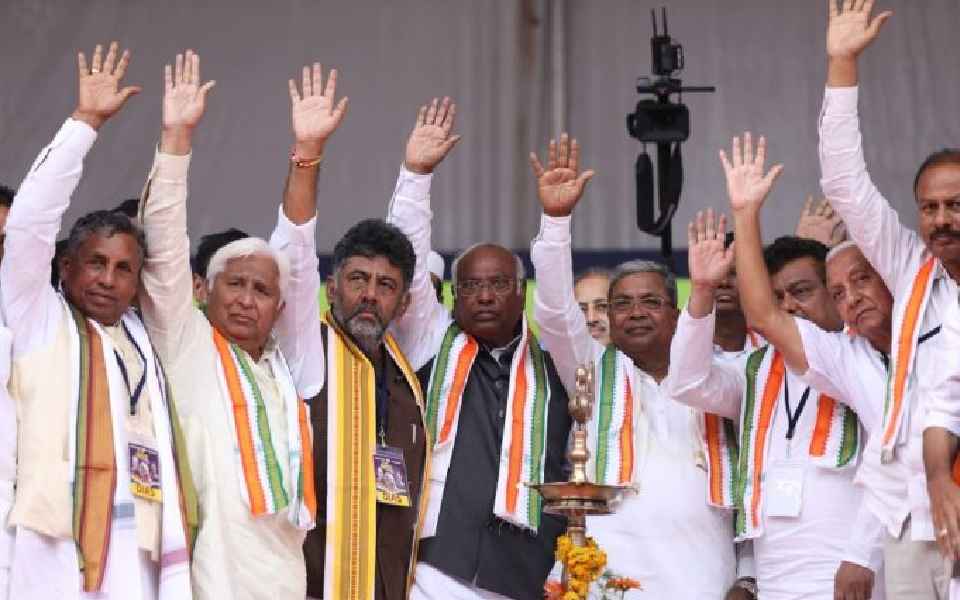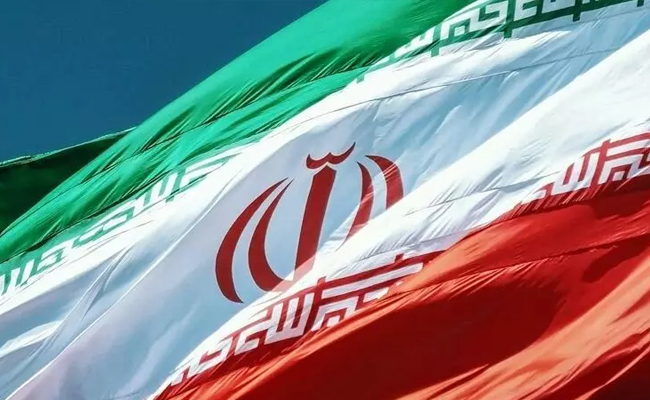Bengaluru, May 24: After wresting power from BJP in Karnataka in the Assembly polls, the state Congress has set its sight on the 2024 Lok Sabha elections, with the party asking its MLAs to work towards winning 20 seats.
Karnataka has 28 Lok Sabha seats, and the target of 20 seats was fixed at the Congress Legislature Party (CLP) meeting held at Vidhana Soudha on Wednesday.
"We should win 20 seats in the Lok Sabha polls. We can't sit quietly thinking that we have won the Assembly election. The momentum must carry into the Lok Sabha polls," state Congress president and Deputy Chief Minister D K Shivakumar said at the meeting.
The BJP had swept 2019 Lok Sabha polls by winning 25 out of 28 seats, while an independent supported by it won one seat. The Congress and JD(S) won just one seat each.
Asking MLAs not to neglect party workers and to respond to people who voted them to power, Shivakumar called on them to ensure that the Congress office is functioning in every district and constituency across the state.
ALSO READ: BJP targets Deputy CM Shivakumar for his 'saffronisation' remarks on Karnataka Police
Later, speaking to reporters, the KPCC chief said the government's top priority is to fulfil the five 'guarantees' made to citizens ahead of polls.
"MLAs have been asked to tour their constituencies to thank voters for the win in Assembly polls," he said.
Chief Minister Siddaramaiah, who is also the CLP leader, asked MLAs to regularly attend Assembly sessions.
He also asked the MLAs to create awareness among citizens on the "discrimination" Karnataka is facing at the hands of the Narendra Modi-led government at the centre in terms of devolution of funds, and the injustice that happened to the state with respect to the finance commission.
Let the Truth be known. If you read VB and like VB, please be a VB Supporter and Help us deliver the Truth to one and all.
Vadodara (PTI): India skipper Shubman Gill won the toss and opted to bowl first in the first One-day International against New Zealand here on Sunday.
India have included six bowlers in their playing Xi with Giil saying he wants to "try different combinations and see how that works".
Washington Sundar, Kuldeep Yadav and Ravindra Jadeja have been included as spin-bowling options, while Harshit Rana, Mohammed Siraj and Prasidh Krishna are the pacers.
NZ skipper Michael Bracewell said Kristian Clarke and Adithya Ashok will be making their ODI debut.
Teams:
India: Shubman Gill (capt), Rohit Sharma, Virat Kohli, Shreyas Iyer, KL Rahul (wk), Washington Sundar, Ravindra Jadeja, Harshit Rana, Kuldeep Yadav, Mohammed Siraj, Prasidh Krishna.
New Zealand: Devon Conway, Henry Nicholls, Will Young, Daryl Mitchell, Glenn Phillips, Mitchell Hay (w), Michael Bracewell (c), Zakary Foulkes, Kristian Clarke, Kyle Jamieson, Adithya Ashok.





